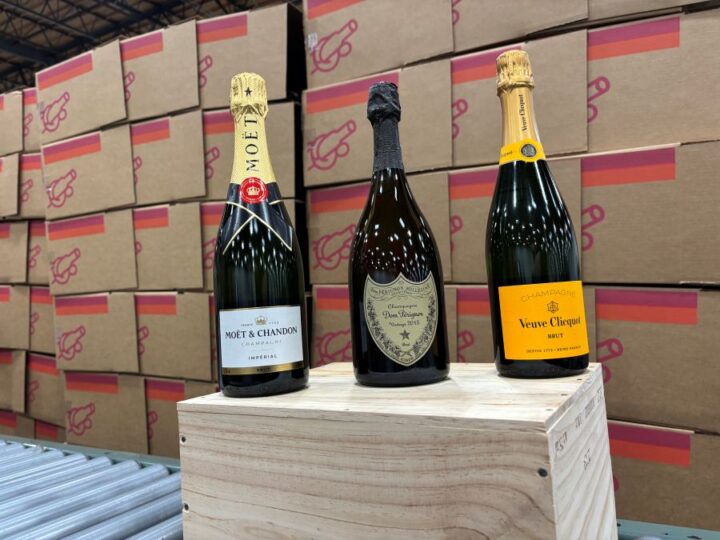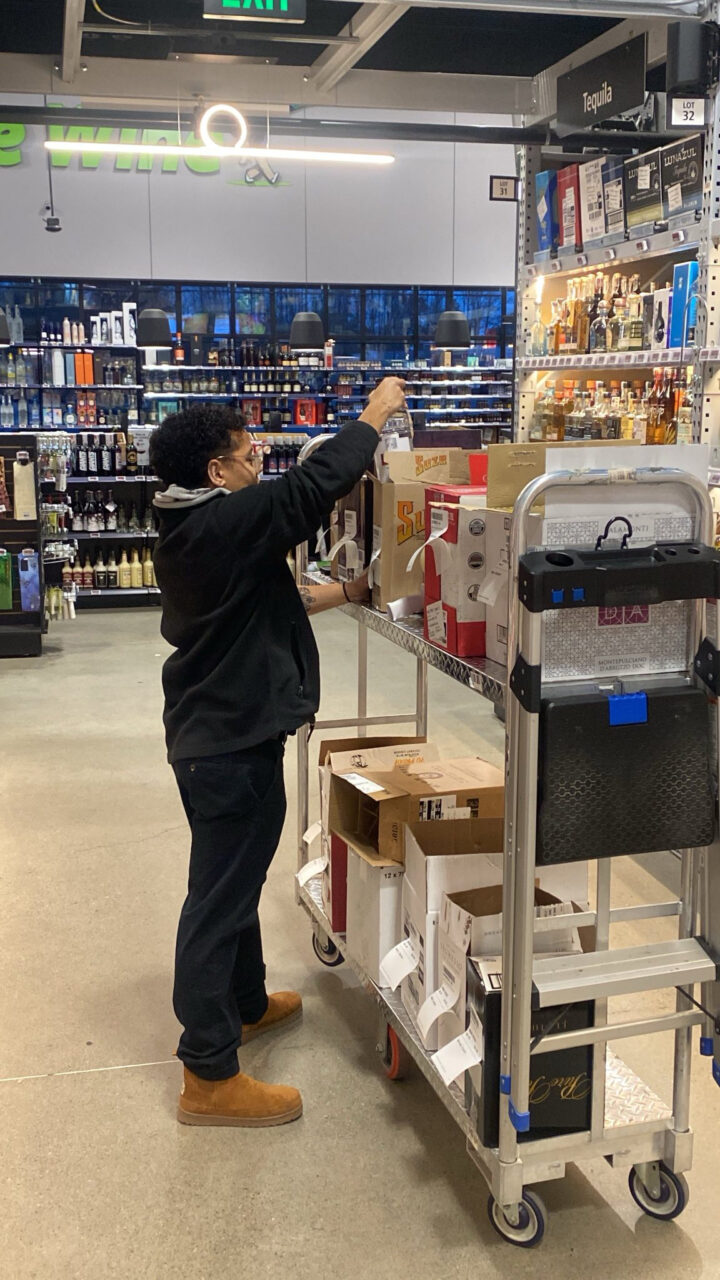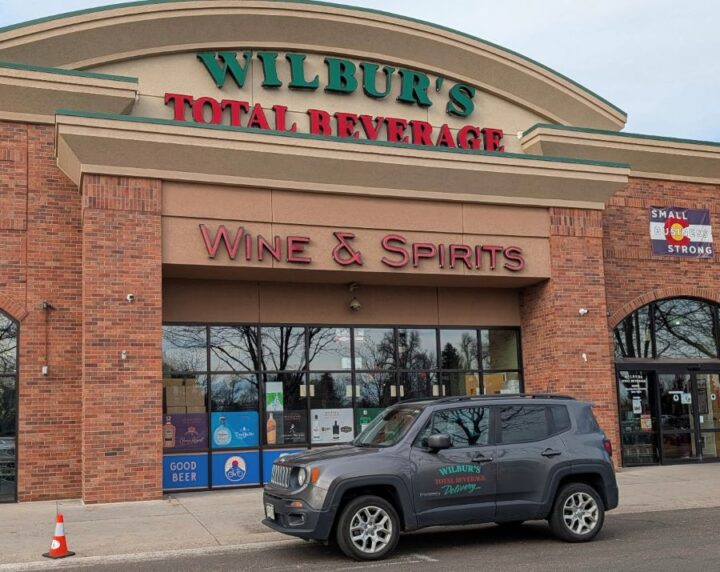
Convenience, brand recognition, and consistency are driving online retail wine and spirits sales heading into the festive holiday gifting season. “Our top holiday season sellers remain Champagnes and sparkling wines because of celebrations and our dominant position in gifting,” says Mark Pinho, CEO of San Francisco-based Wine.com, the largest online wine retailer in the United States. “This covers a broad range of price points from Moet & Chandon (starting at $60 a750-ml.) to Veuve Cliquot (starting at $70), and Dom Perignon (starting at $289). We also continue to see a shift toward higher value and more unique items, especially with younger buyers. We are working more of these products into the traditional holiday mix.”
Wine.com’s top focus heading into holidays has been developing its automated gifting tool. “This allows customers to customize gifts for multiple recipients utilizing only the recipients’ email addresses,” Pinho says. “We’ve created a more curated selection feature, where the sender can choose a wine or pick an assortment, from which the gift recipient can choose. We have also invested in better targeting and personalization to help customers navigate options.”
Retailers are cranking up support for online sales with email blasts, print and billboard ads, and tapping into technological marketing and business innovation resources, including Search Engine Optimization (SEO) geo fencing, and Supply Path Optimization (SPO). “We have different billboards going up over the next couple of weeks throughout the capital region,” says Mike Caputo, internet operations manager at Empire Wine in Albany, New York. “For shipping customers, we rely on SEO and our weekly emails, which we’ll soon increase to two a week. Our Youtube page is young, but we’ve already seen it affecting the top of the funnel for us. With the holiday-specific content we have planned, it’ll push the needle a little further.”

Whether it’s for delivery or pickup, online ordering is an important link in the beverage alcohol supply chain. “We’re seeing a split between people looking for good value, whether its free shipping deals or hunting for good quality price relationships, and people looking for stuff they can’t find,” Caputo says. “Our special-order business, allowing people to buy things we don’t usually carry, has been huge the past few years.”
Online sales are a growing part of Empire’s business model. “Eight years ago, we were excited to see $50,000 day for online sales during the holidays. Now, that’s a normal day in May or June,” Caputo says. “Online daily sales compared to one year ago are up around 40%, and it’s barely mid-November.”
Popular national brands dominate online sales at Empire and stimulate overall sales. Tito’s vodka ($31 a 1.75 liter) leads spirits sales. Josh Cabernet-Sauvignon ($11 a 750-ml.) is the top-selling red wine, and Kendall-Jackson Chardonnay ($12) leads white wines. “They’re easy-drinking and crowd-friendly,” Caputo says. “These are the brands getting people in the door and on the website.”
Caputo has high expectations for online sales this holiday season. “The average purchase online is larger than it is in the store,” he says. “If you’re going to have nine bottles hauled across the state or country, you may as well fill out the case with a few more bottles.”

In Colorado, Mat Dinsmore, owner of Wilbur’s Total Beverages in Fort Collins and Wyatt’s Wet Goods in Longmont, promotes online shopping with direct emails and print ads and uses geo fencing and SPO to maximize delivery operations and opportunities. “It’s essential for beverage alcohol retailers to have a robust e-commerce website,” he says. “It helps us when people are perusing the website to see if we have something, and it does lead people into the brick and mortar.”
November and December account for about 25% of the overall annual sales at Wilbur’s and Wyatt’s. National and international online orders for gifts at the stores accelerate this time of year. “People can peruse our whole catalogue from their own home without having to make a phone call,” Dinsmore says.
Like Empire, big brands with powerful name recognition lead online sales at Wilbur’s and Wyatt’s. Crowd pleasing wine leaders include LaMarca Prosecco ($18 a 750-ml.), Kendall Jackson Vintner’s Reserve Chardonnay ($15), and Meiomi Pinot Noir ($20). Spirits sales leaders include Maker’s Mark ($35 a liter) and Buffalo Trace ($30 a 750-ml.). “I thought delivery would be for dual income couples with no kids, but our deliveries skew older, mostly boomer age who are going for convenience,” Dinsmore says.

In Colorado, beverage alcohol deliveries must be made in a vehicle the retailer owns or leases by someone who is at least 21 years old and TIPS (Training for Intervention ProcedureS) certified. Each of Dinsmore’s stores has two delivery vans and two delivery cars. “We take on extra workers for the holidays but not for delivery,” Dinsmore says. “We want to use the same experienced delivery drivers.”
While acknowledging the importance of online sales, Dinsmore believes customers have a better retail experience when they enter his stores. “I would rather get customers into the store because we do a better job of communicating with them in person than we do online,” he says. “We have a good shopping experience, but you have to a balance between brick and mortar and online platforms.”